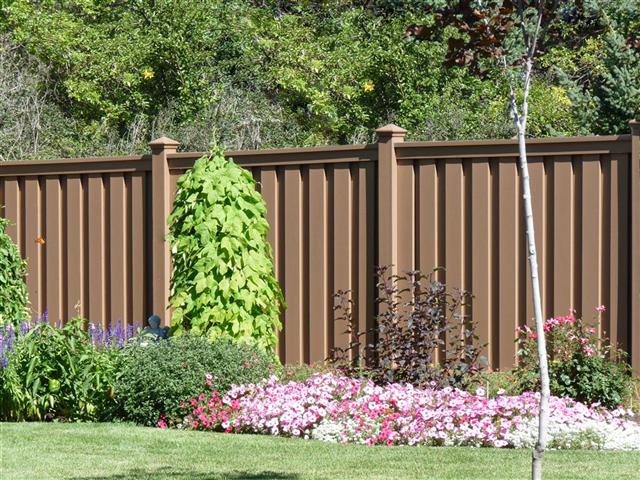All Categories
Featured

Selecting the best fencing product for your residential property is a decision that balances looks, capability, and budget. Among one of the most prominent choices, wood, plastic, and light weight aluminum each offer special benefits and disadvantages. Recognizing these can help you make an informed choice that aligns with your needs. Here's a break down of the pros and cons of these three common secure fencing products.
Wood Fencing. Timber fence has been a timeless choice for homeowners due to its natural beauty and flexibility.
Pros:. Visual Allure: Wood uses a classic and warm appearance that matches a variety of architectural styles. Adjustable: It can be painted, discolored, or cut right into unique styles to suit personal preferences. Cost-efficient: Originally, timber secure fencing can be a budget friendly choice contrasted to other products. Eco-Friendly: Timber is a renewable energy and can be sustainably sourced. Cons:. High Upkeep: Wood needs regular sealing, discoloration, or paint to prevent rot, insect damages, and weathering. Toughness Concerns: Without proper treatment, wood can warp, crack, or decay in time, particularly in locations with high humidity. Much shorter Life expectancy: A wood fencing usually lasts 10-20 years, depending on the kind of wood and level of maintenance. Wood is perfect for those who value a standard appearance and agree to commit to its upkeep.
Plastic Secure Fencing. Plastic is a contemporary, low-maintenance fencing choice that has actually expanded in appeal in recent times.

Pros:. Low Upkeep: Vinyl does not require painting, staining, or sealing and can be easily cleansed with soap and water. Climate Resistant: It holds up against rough weather condition conditions without deteriorating, rusting, or bending. Lasting: Vinyl fencings can last 20-30 years with minimal upkeep. Variety of Styles: Readily available in several shades, designs, and structures, some plastic options simulate the appearance of timber. Cons:. Greater Upfront Expense: Plastic secure fencing can be a lot more costly at first contrasted to timber. Brittleness in Winter: In extreme cool, vinyl may fracture or become weak. Minimal Fixes: Individual panels can be challenging to change, requiring mindful matching to the existing fencing. Plastic is ideal matched for homeowners looking for a long lasting, low-maintenance remedy with modern-day visual appeals.
Aluminum Secure Fencing. Aluminum fencing is a light-weight and long lasting choice, frequently selected for its contemporary look and convenience.
Pros:. Rust-Resistant: Light weight aluminum doesn't corrosion, making it an excellent option for damp or wet climates. Low Maintenance: Requires minimal upkeep and is very easy to clean. Resilient: While light-weight, aluminum is solid enough to stand up to many ecological conditions. Lengthy Life expectancy: Can last numerous decades without substantial wear or deterioration. Range of Styles: Uses a streamlined and sophisticated look, typically utilized for ornamental or decorative objectives. Cons:. Greater Expense: The first investment for light weight aluminum secure fencing is greater than timber or vinyl. Much Less Privacy: Light weight aluminum fencings are usually created with open pickets, making them less effective for privacy. At risk to Damages: Although resilient, light weight aluminum can be dented by strong effects. Light weight aluminum is suitable for those seeking a trendy, resilient choice that requires very little care.
Making the Right Option. Each secure fencing product-- plastic, aluminum, and timber-- provides distinctive advantages and drawbacks. Your choice must depend upon your particular top priorities, such as budget, upkeep preferences, environment, and aesthetic objectives:
Pick wood if you like a standard look and don't mind regular maintenance. Select vinyl if you desire a low-maintenance, weather-resistant fencing with contemporary allure. Go with light weight aluminum if you prioritize durability, rust resistance, and a streamlined layout. By considering these advantages and disadvantages, you can choose a secure fencing material that enhances your residential or commercial property while fulfilling your functional demands.
Latest Posts
Find Out Reduce Expenses on Car Maintenance with Montclare Auto Repair’s Special Deals
Published May 26, 25
1 min read
Discover Cut Costs on Car Maintenance with Montclare Auto Repair’s Limited-Time Deals
Published May 25, 25
1 min read
Discover Special Auto Repair Specials in Chicago at Montclare Auto Repair
Published May 22, 25
1 min read
More
Latest Posts
Find Out Reduce Expenses on Car Maintenance with Montclare Auto Repair’s Special Deals
Published May 26, 25
1 min read
Discover Cut Costs on Car Maintenance with Montclare Auto Repair’s Limited-Time Deals
Published May 25, 25
1 min read
Discover Special Auto Repair Specials in Chicago at Montclare Auto Repair
Published May 22, 25
1 min read